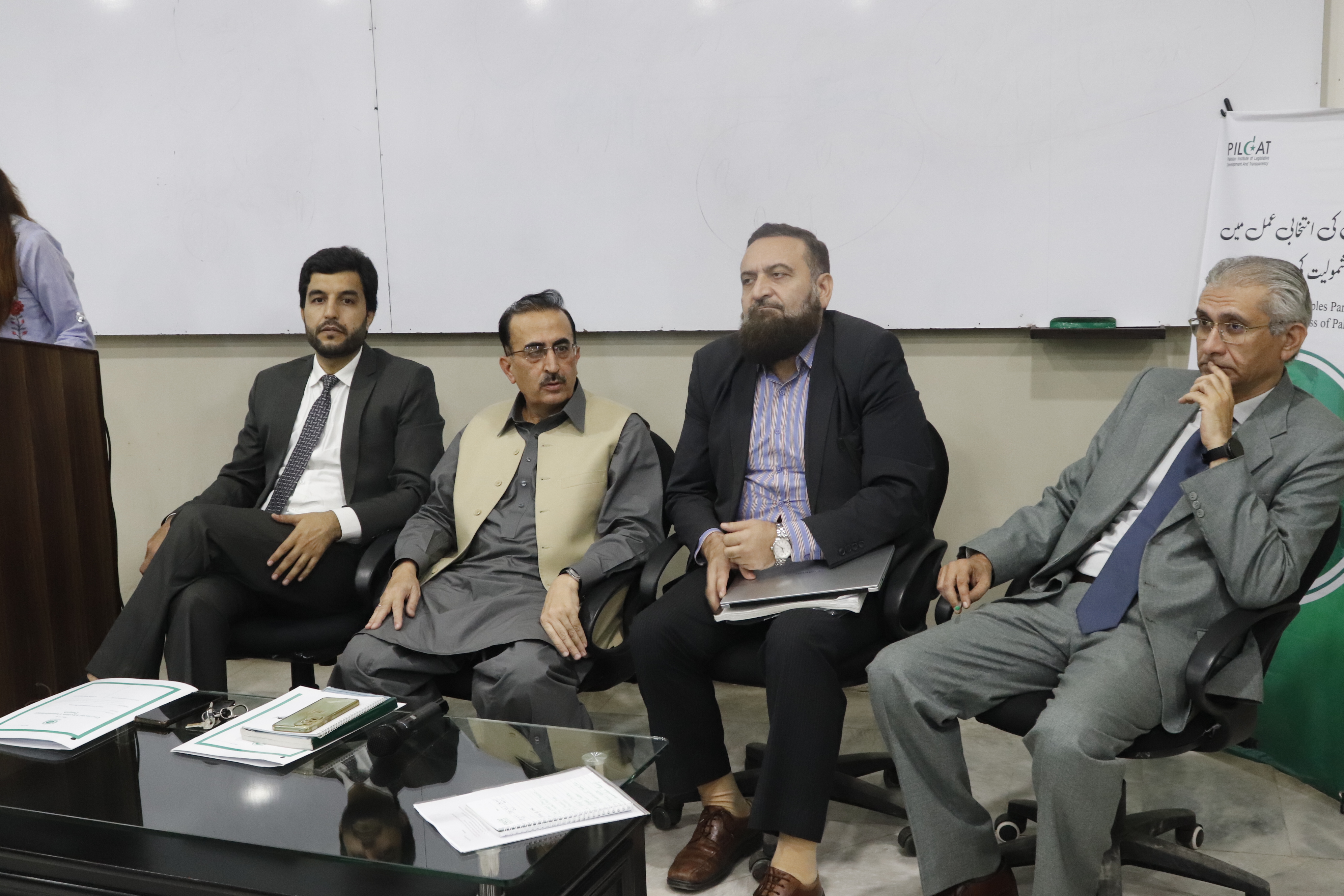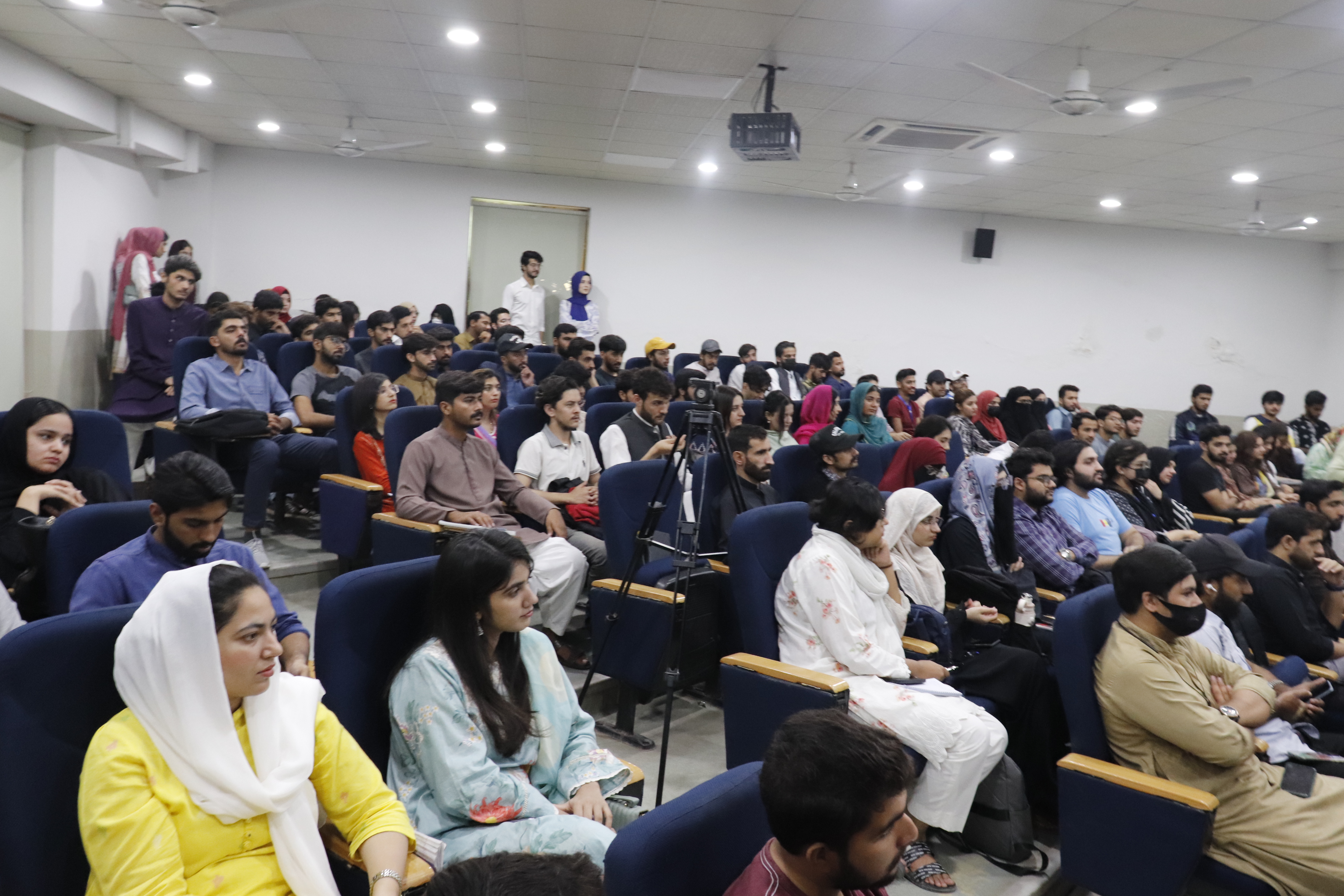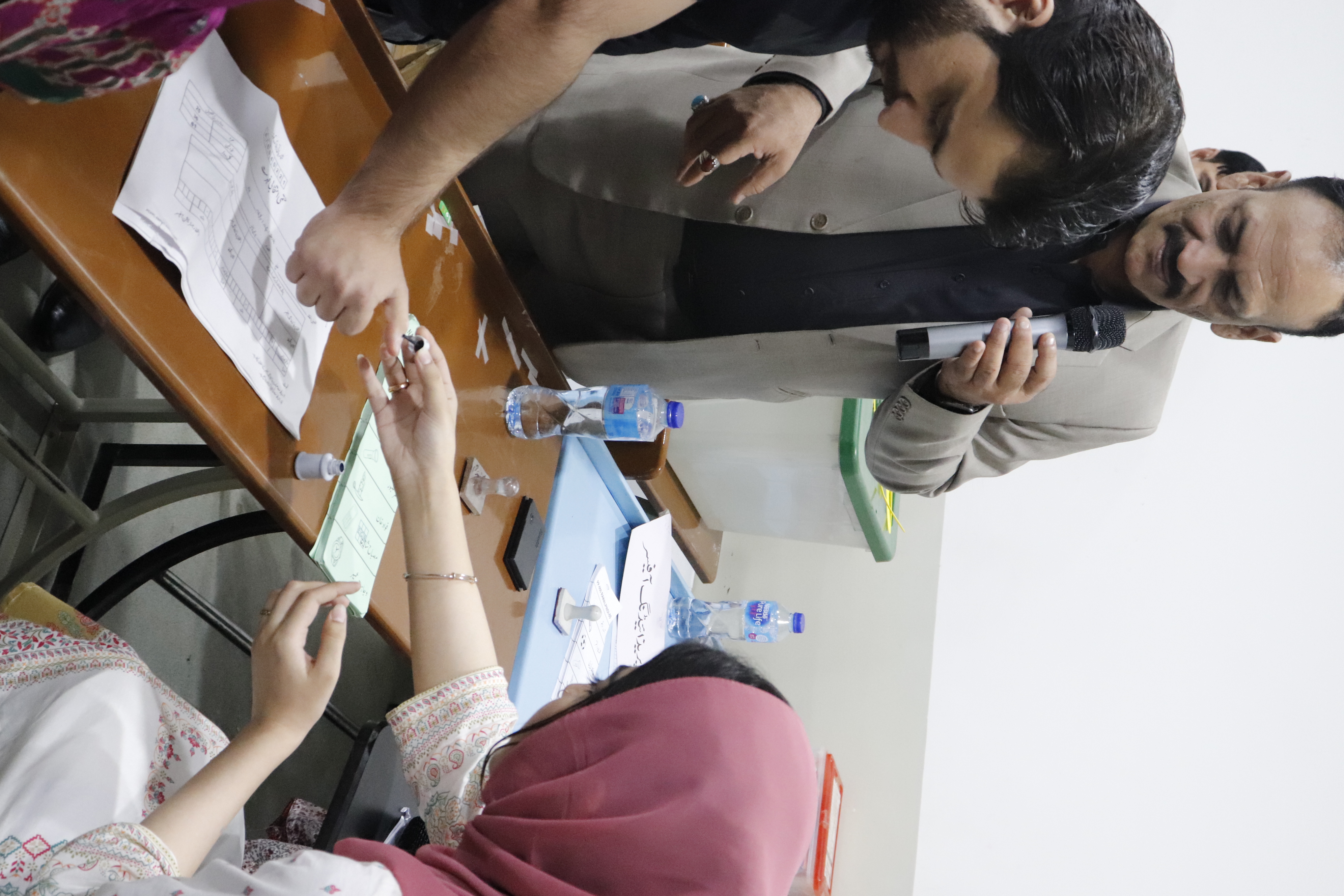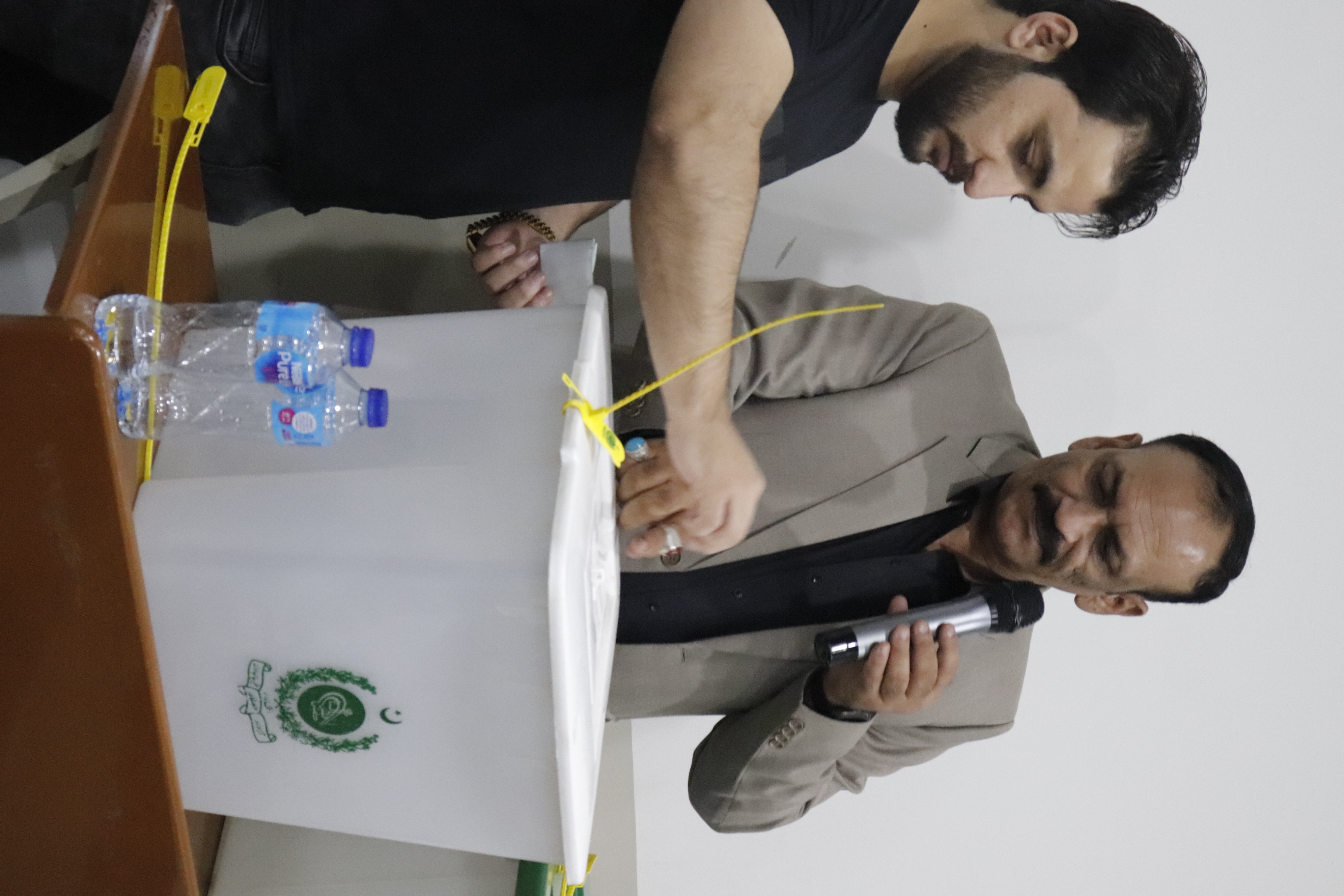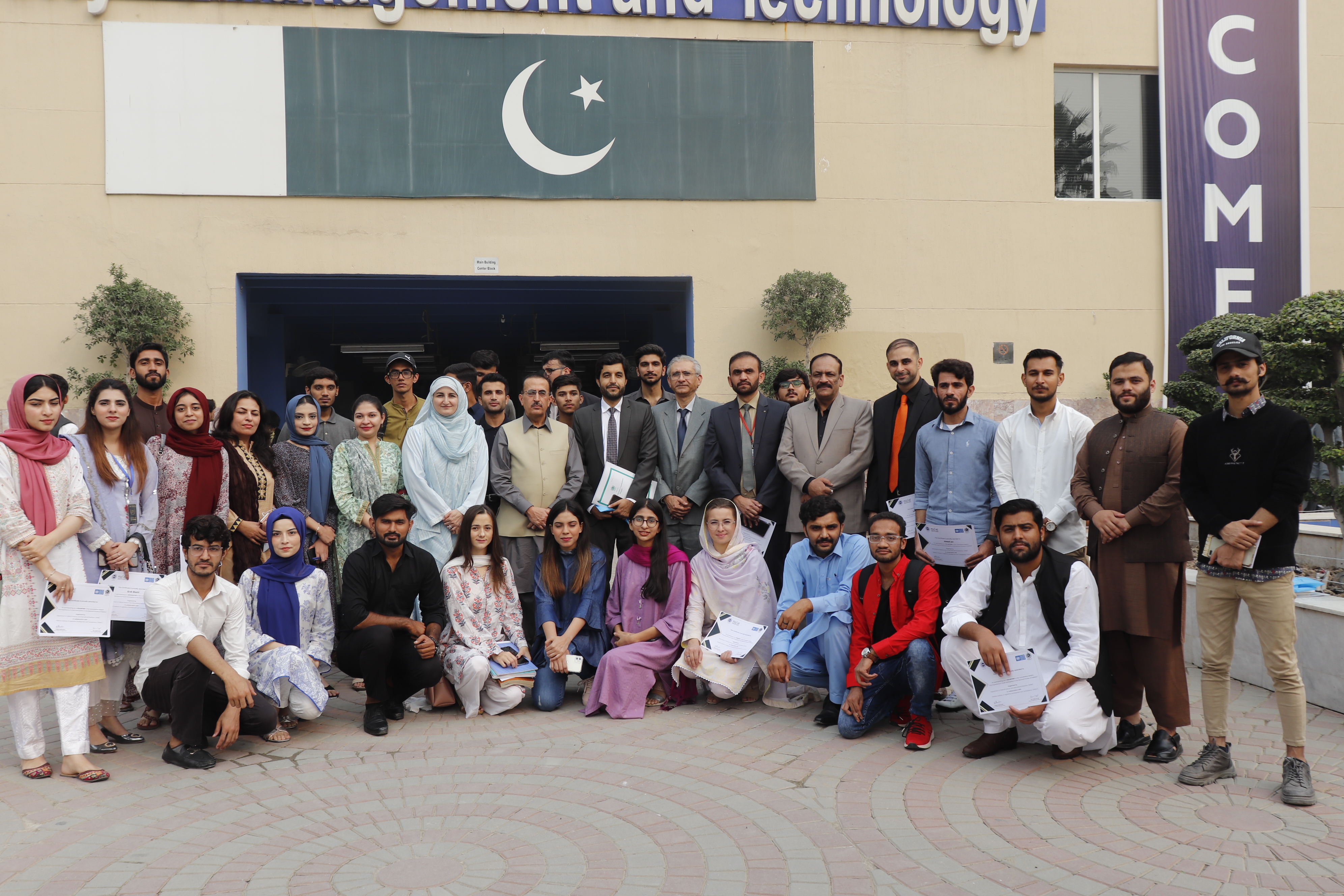
October 30: A consultative session with the students and faculty of the University of Management and Technology, Lahore was held at their main lecture hall in collaboration with UNDP Pakistan. Mr. Shabbir Khan, Deputy Director, Gender and Social Inclusion and Mr. Khushal Zada, Deputy Director, Elections represented the Election Commission of Pakistan (ECP) at the consultative session.
Dr. Shoaib Parvez, Professor and Former Head of the Department of Political Science at UMT, welcomed the participants and highlighted the importance of the session. He urged upon the students to exercise their right to vote and ensure their participation in the electoral system to safeguard their rights. Acknowledging the youth’s disillusionment with the current political system, he emphasized the necessity of their participation in the electoral process for meaningful change. He asserted that the youth’s engagement in Pakistan’s political and electoral processes is crucial for the country’s future.
Mr. Faheem Ahmed Khan, Senior Projects Manager PILDAT, introduced the panel members. The panel members included Mr. Shabbir Khan, Deputy Director, Gender and Social Inclusion, Mr. Khushal Zada, Deputy Director, Elections from the ECP. The Youth Representatives included Ms. Suriya Kausar, Mr. Muhammad Abdullah and Mr. Fayyaz Jadoon. Whereas the faculty was represented by Mr. Saad Malik, Associate Professor of Political Science and Dr. Inamullah Marwat, Assistant Professor of Political Science.
During his presentation, Mr. Faheem Ahmed Khan, Senior Projects Manager PILDAT discussed the demographic distribution of registered voters in Pakistan, highlighting 45% of the total registered voters belonging to the age group of 18-35 years. Additionally, he provided a comparative analysis of the voting behaviors shown by the young population of Pakistan and India. Notably, the youth voter participation in India surpassed the overall voter turnout seen in the most recent Indian elections. The panelists agreed that low youth voter participation was a genuine problem, not a myth and gave their views on the low youth voter participation.
The youth representatives while expressing their views acknowledged that it was a fact that the youth does not participate in the electoral process and tends to stay away from all political activities, especially when it comes to voting on the polling day. Citing the reasons, they were unanimous to say that the youth feel a disconnect from the political parties as they do not encourage youth and no or little representation is given to the representatives of the youth in the youth wings of the political parties. The Political parties also do not encourage youth to contest elections on their tickets. They were also skeptical of the election process and raised questions about the transparency and sanctity of the vote. They were of the opinion that the election results are manipulated by the ECP staff to favor the candidate of the establishment choice rendering the whole exercise useless which has further contributed to keeping the youth away from participating in the electoral process.
Mr. Khushal Zada, Deputy Director Elections while responding to the remarks of the youth representatives mentioned that this was a perception created but in actual effect, ECP makes all efforts to keep the electoral process transparent and ensures free and fair elections. He was of the opinion that this perception would clear once the youth participate in the mock polling exercise and they will get a fair idea that ECP cannot manipulate the election results.
Mr. Shabbir Khan, Deputy Director of Gender and Social Inclusion, ECP, emphasized the vital role of youth in the electoral process, pointing out widespread mistrust issues that extend beyond a single institution’s responsibility. He stressed the need to change the public’s perception of voting and called for a behavioral change towards the polling exercise. He went on to say that the change will only occur through active youth participation in the electoral processes. Mr. Shabbir also detailed the voter registration process and encouraged students to cast their votes not just for political parties but for the preservation and strengthening of democracy as a whole.
Mr. Saad Malik, Associate Professor of Political Science, while giving the university perspective acknowledged that the student unions should be revived and HEC should include a course on constitution of Pakistan and Civic rights and responsibilities in the curriculum.
Dr. Fatima Sajjad, HOD Department of Political Science in her concluding remarks thanked PILDAT. UNDP and the ECP for organizing the session, which she termed as inclusive and very engaging. Certificates were also given to the volunteers and organizers of the university.
The session was attended by a total of 149 students out of which 59 (39%) were young women and 90 (60%) were young men.
Following the panel discussion, students enthusiastically took part in a mock polling exercise, actively casting their votes. Their eagerness to experience the democratic process firsthand and engage in meaningful discussions about the topics presented during the panel discussion was evident.
